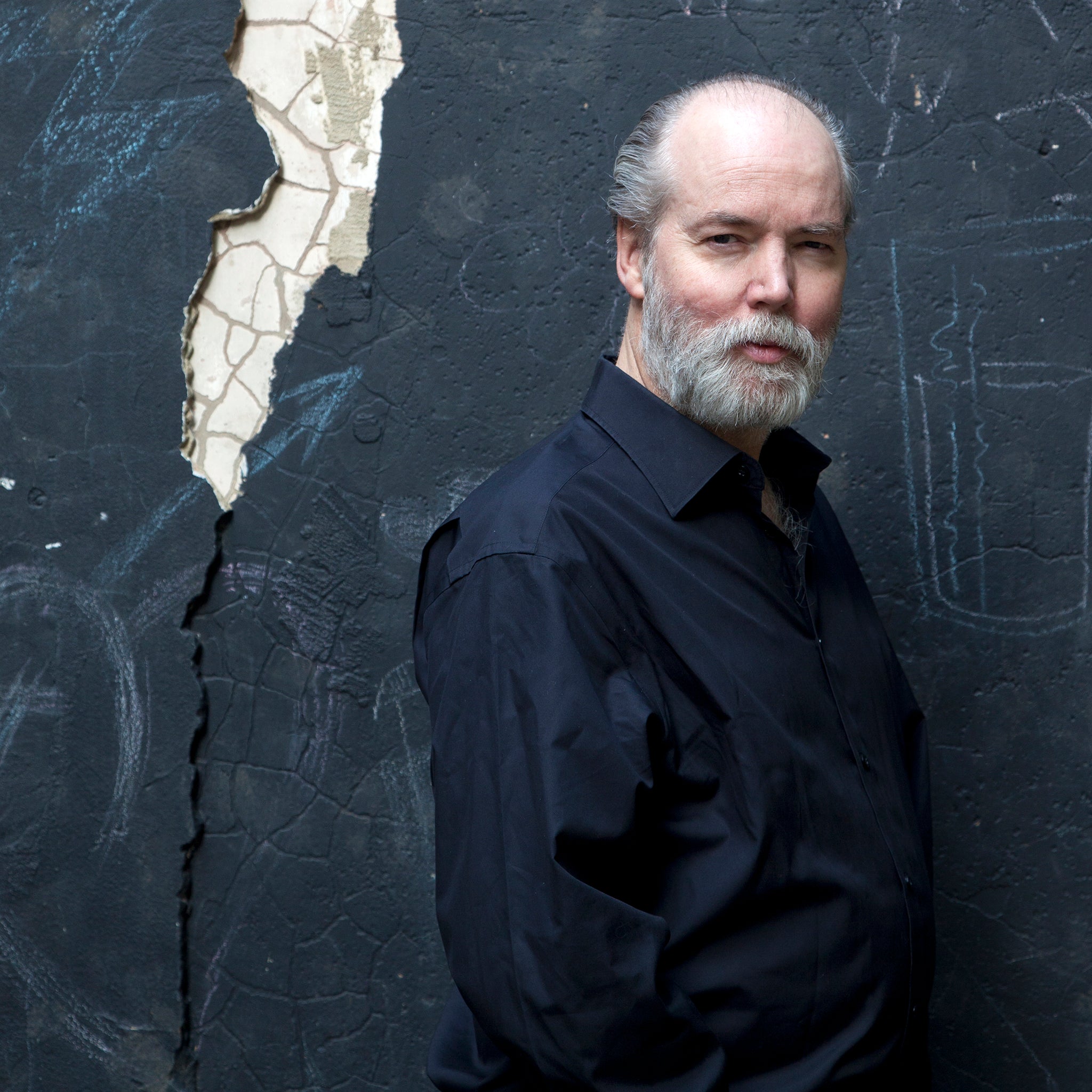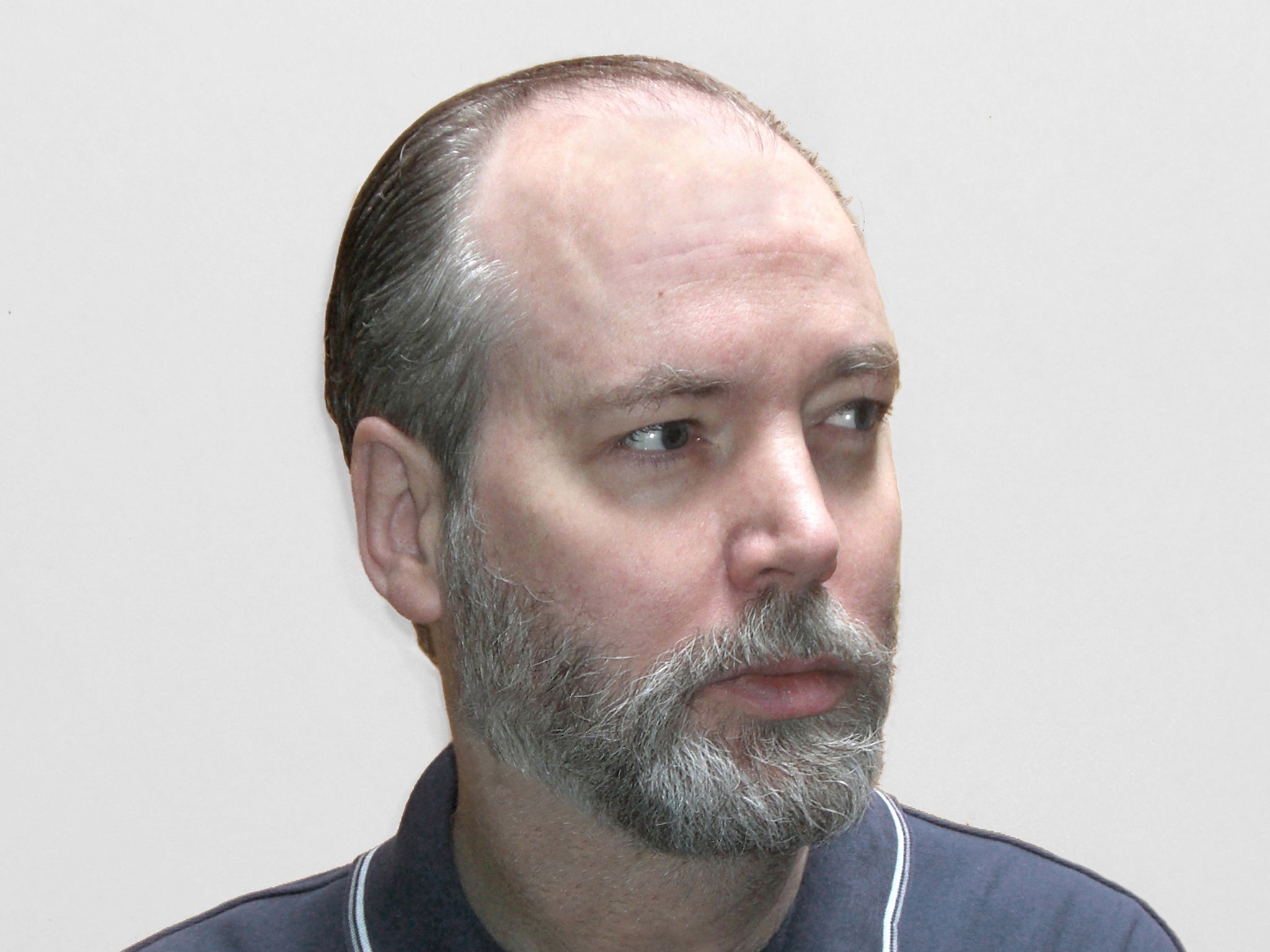Douglas Coupland interview: Meet the man whose writing defines modern popular culture
Coupland has even been credited with inventing, in Microserfs, a product that became Minecraft, the best-selling PC game of all time

Your support helps us to tell the story
From reproductive rights to climate change to Big Tech, The Independent is on the ground when the story is developing. Whether it's investigating the financials of Elon Musk's pro-Trump PAC or producing our latest documentary, 'The A Word', which shines a light on the American women fighting for reproductive rights, we know how important it is to parse out the facts from the messaging.
At such a critical moment in US history, we need reporters on the ground. Your donation allows us to keep sending journalists to speak to both sides of the story.
The Independent is trusted by Americans across the entire political spectrum. And unlike many other quality news outlets, we choose not to lock Americans out of our reporting and analysis with paywalls. We believe quality journalism should be available to everyone, paid for by those who can afford it.
Your support makes all the difference.The first time I met Douglas Coupland, in 2009, he was in the UK to promote his last-but-two novel, Generation A.
The launch dinner was in a crowded little basement room, and Coupland, who has trouble with his hearing, was struggling. At some point, a bottle of champagne exploded, causing the author to wince and hold his ears. It seemed like something that might happen in one of his novels, where freaky little glitches in the natural order of things are often wrapped up with dramatic consequences for humans. But, since his first novel Generation X was published in 1991, Coupland’s fiction seems to have been defining modern culture as much as reflecting it. (He has even been credited with inventing, in 1995’s Microserfs, a product that became Minecraft, the best-selling PC game of all time.) Is he now fated to spend his life walking through a world that is Couplandesque?
I meet the 52-year-old author now in a trendy hotel in London’s Shoreditch to talk about his new non-fiction title, Kitten Clone: Inside Alcatel-Lucent, in which he explores the past, present, and future of one of the most important companies nobody’s ever heard of. It’s the third in the Writers in Residence series curated by Alain de Botton, and it shares with de Botton’s A Week at the Airport and Geoff Dyer’s Life Aboard the USS George HW Bush a sort of geeky sensuality that will be a joy to Coupland’s fans.
In it, Coupland and the photographer Olivia Arthur visit the offices of a company that (to oversimplify) owns the pipes that supply the internet. “I thought that the Internet was a metaphor for life,” he has said; “now I think life is a metaphor for the Internet.” The book begins, he explains, “with my complete bafflement. [I’ve visited] tech companies on the west coast where there’s the pizza oven and the slide and the waterfall in the lobby, and instead it was like walking into, like, a really bad hotel where your dad would stay after your parents got divorced or something.” The photographs – of dusty Alcatel offices, flickering light bulbs, and “brick the colour of a wet golden Labrador” – are amazing.
In Kitten Clone, Coupland approaches the task of investigating his topic with the type of super-intelligent, wide-eyed curiosity that is perhaps specific to a writer and visual artist who hasn’t himself had a proper job since 1988. (It was at a business magazine in Toronto. “I sometimes have dreams where I’m employed and it scares the shit out of me.”) But though he was fascinated by Alcatel-Lucent, he says, the role of neutral onlooker was not an easy one – and not only because he was the Douglas Coupland, going to interview people who had grown up as fans.
“Here’s a parable”, he says. “Back in the early Eighties I had this job working as a designer in a baby crib factory … I’ve actually designed technically about half the baby cribs on earth … I watch TV and movies, and I’m like, ‘Oh, that’s my Spindle model 300.’ I’m very proud of that. But I remember once, I thought ‘Well I just really need to walk around with a clipboard making notes.’ Everyone freaked out. ‘What the hell is he doing with a clipboard?’ The lesson from that is, don’t walk around with a clipboard.”

Interviewing Coupland is not an easy task, either. It’s not just because the music in the hotel café is too loud and too annoying. “Oh God, this is driving me nuts”, he keeps saying. “I think we’re having this battle of endurance with the woman who’s in charge of it. I’m not paranoid I think she’s really doing it. Or I’m just paranoid.” This is clearly a man with a huge and restless brain, and he’s curious about everything, which leads to digressions. “Have you been to China? Everyone should go once, it lives up to the hyperbole ... It looks like you’ve read [my book], I can tell by the wear pattern … Are you a writer? Who do you like to read? Have you read David Mitchell’s new one? What is the state of bookstores here? What kind of people read The Independent on Sunday? These are the best chips ever …” At other times, he steers the conversation rather like a drunk driver. “The strangest things take off, and other things you think are just the bees knees tank”, he says. So naturally I ask which of his books he loved that tanked. He smiles intriguingly, and then says very politely in his soft, Canadian accent: “I don’t wanna talk aboot that.”
At one point he disappears for five minutes to fetch me a copy of the book of his latest art exhibition (Everywhere is Anywhere is Anything is Everything, Black Dog Publishing, £24.95) and we are both transfixed for a while by the “Canadian Identity” section. “That’s a narwhal tusk ... That’s radioactive Japanese tsunami debris we collected off the coast of British Columbia …”) I ask what his fiction and his visual art have in common – a kind of Pop Art aesthetic? But he’s off again, about some 100-foot poles, a light box “the size and shape of a Rubik’s Cube”, and a project that he’s working on for the Mayor of Vancouver.
He will admit that “I guess the common thread of all of this is just a fascination with contemporaneity and the things that are changing … The books of writers I admire, like Joan Didion or F Scott Fitzgerald, you can tell what week they’re happening in, so what happens is you get these books that are wonderful time capsules. And you take one [of mine], like Microserfs, and it’s like opening the contents of the lost ark called 1995 and it’s all there: what it’s like to attend a CD Rom development meeting, what people were eating, what was passé, what coming into vogue, and it was a very innocent time back then.”
He has said recently that he misses his “pre-internet brain”, but he tells me now that researching this book has made him less scared about the future. That said, there’s no point in being against change. “It’s like weather. Are you against weather? Well, it doesn’t matter, it’s going to happen anyway.”
And then he says: “You know what we can do? Let’s go and have a look at the sociological phenomenon known as this hotel’s lobby.” And the Douglas Coupland creeps up to try to observe unnoticed the rows of 26-year-olds on laptops – Generation Hipster – “every single person living in an augmented reality, using their two or three devices – it’s the new sociability, isn’t it? It’s a not unfriendly vibe.” I venture to suggest that it’s Couplandesque, and he laughs, long and loud. “Well, if this is the future, everything does hold together.”
Kitten Clone: Inside Alcatel-Lucent by Douglas Coupland is published by Visual Editions, £25
Join our commenting forum
Join thought-provoking conversations, follow other Independent readers and see their replies
Comments